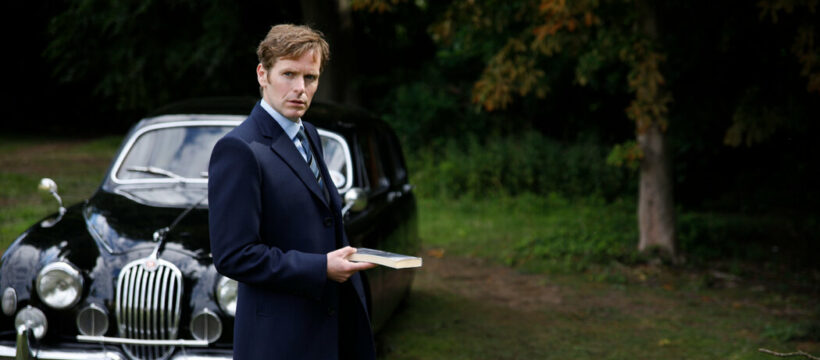After three shows, 26 seasons and 36 years, one of TV’s most devoted fan bases will have to say goodbye to the world of its testy Oxford detective.
By Mike Hale
In a week that will see the returns of “And Just Like That …” and “The Bear” and the arrival of a new Marvel series, giving space to a creaky British mystery as it tiptoes into its ninth and final season might seem like an odd choice. But it’s just self preservation.
Fans of “Endeavour,” returning Sunday on PBS’s “Masterpiece,” are a particularly grumpy and vocal bunch. Review some other British crime drama? “What about ‘Endeavour’?” Make a list of your favorite international television shows? “You forgot ‘Endeavour’!” Check your email? “‘Endeavour’!” I’ve been putting up with it for 11 years. Not this time.
The reasons for this devotion are not hard to fathom. The show, set in the late 1960s and early ’70s and centered on the young Oxford police detective Endeavour Morse (Shaun Evans), is a prequel to an even more beloved series, “Inspector Morse,” which ran on and off for eight seasons beginning in 1987. And along with an earlier and solidly successful spinoff, “Inspector Lewis” (nine seasons from 2006-15), “Endeavour” is part of a Morse cinematic universe that is every bit as self-referential and auto-nostalgic as its Marvel counterpart. (Colin Dexter, who wrote the novels on which the character was based, made frequent Stan Lee-like cameo appearances in all three series before his death, in 2017.)
Russell Lewis, who wrote all 36 episodes of “Endeavour,” predictably emphasizes archival associations in the final three 90-minute episodes. A grisly, partly unresolved story line from Season 2 of “Endeavour” is revived, supplying an extra sense of closure and bringing with it long forgotten but colorful characters. Favorite locations from the picturesque campus and environs of Oxford, the setting for all three shows, are revisited.
Motifs that migrated from “Inspector Morse” back to “Endeavour,” like Morse’s drinking, his reticence with women and his wary relationships with his colleagues, are worked through in ways that roughly line him up to become the morose, arrogant, dyspeptic character seen in the original series (though it remains difficult if not impossible to picture Evans’s Morse — svelte, sharply tailored, body in a permanent clench — turning into the cantankerous middle-aged frump played by John Thaw).
Most important for the devotees of Morseiana will be the more literal correspondences among the shows, and the final season does not skimp. A scene shot in the same Exeter College quad where Morse will one day have the heart attack that kills him calls forward to the original series. In general, this fan service might not be as elegantly handled or as evocative as you could wish, but followers are still likely to be pleased with the final episode’s concluding orchestration of music, location and automobile.
Less pleasing, as they have been throughout the show’s run, are the weekly mysteries. These are presented in the mannered, quietly handsome style of other period crime shows from the British network ITV, but they tend to have baroque levels of complication, coincidence and implausibility that make it hard to take the crime-solving side of the show seriously. As Morse investigates a musician’s poisoning, a metafictional case involving a cop-show-within-a-cop-show and a particularly uninteresting serial killer of Oxford dons, the welter of dead bodies is hard to keep track of or to care about.
Luckily, or wisely, the show never killed off its secret weapons. Evans has been solid as Morse, conveying the character’s intelligence and prickly alienation. But flanking him for the nine seasons were two distinguished British actors who have been a pure pleasure to watch: Anton Lesser as the police superintendent, Bright, and Roger Allam as Morse’s immediate boss, Thursday.
The final season is as much Allam’s as it is Evans’s, with the stolid, old-school Thursday struggling in his roles as cop, husband, father and, to Morse, surrogate dad. (The season also provides a tortuous answer to the question of why Morse’s old guvnor was never mentioned in “Inspector Morse.”)
With the time line of the story reaching 1972, Thursday is more troubled than ever by the increasingly violent, morally untethered English society around him, and Allam’s embodiment of his bewilderment feels absolutely authentic. Loyal, steadfast and with an arm’s-length relationship to the modern world, Thursday feels like someone who would post, “You forgot ‘Endeavour’!”
Mike Hale is a television critic. He also writes about online video, film and media. He came to The Times in 1995 and worked as an editor in Sports, Arts & Leisure and Weekend Arts before becoming a critic in 2009. @mikehalenyt • Facebook
Site Index
Site Information Navigation
Source: Read Full Article


